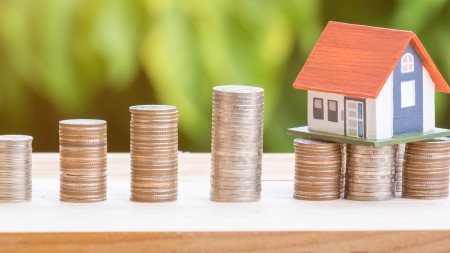Across the globe, value means different things to different people and types of property investors. For example, an investor’s take on the value of the property owned may be short- or long-term and on the other side of the coin, a homeowner is likely looking for long-term value.
Typically though, real estate is considered a long-term investment, but what can make judging value confusing, are the different types of value propositions … it really depends on your specific goals. Value also changes aligned to different economic and industry-specific market conditions, interest and inflation rates, seasons, provinces, and even suburbs. Individual property values can also be affected by the condition of the home, and how quickly a property needs to sell. The variables are endless!
What doesn’t change, however, is the meaning of value, which overall is an estimate of what a property is worth. Neither do the principals used to determine value, change. In South Africa, we primarily use three different approaches but there are others that are worth considering.
- Market value
This term is often accompanied by the word ‘fair’; in other words fair market value. It is usually determined by investigating the average price of a number of homes sold in an area, and the price a buyer is willing to pay. This value will include location, age and condition of the home, and its size. Market value helps to paint a near-to accurate picture of a property’s value by considering: square meterage; number of bedrooms and bathrooms; parking and garages; privacy; proximity to infrastructure and other municipal services such as medical, education and main road access; pools, tennis courts and the likes; outdoor entertainment facilities; and other add-on’s that buyer’s may find attractive such as a wine cellar, man cave, etc.
Property agents are adept at determining market value as they have their finger on the pulse of the market and the area in which they work.
- Investment value
This refers to the amount of money an investor is willing to pay for a property. It is usually undertaken by an independent valuator. Property investors use this method for different reasons: they may want to fix-and-flip; buy-to-rent; or even use the buy, renovate, rent out and refinance the property to acquire another property.
Overall investors want to know that the money they invest in a property will have a return on investment. The recommended basic return aimed for is at least 10% of the initial investment. What also has to be factored in is ‘appreciation’, which is the increase in value of a property over time. Appreciation can be ‘forced’, meaning that through further investment in the property, such as adding a bathroom or replacing a roof, higher profits can be realised through increases in rental or through a sale.
- Assessed municipal value
Municipal values are not considered the most accurate because they are an automated estimate and do not include any of the characteristics of an individual property. They may, for example, be purely based on stand size and number of rooms in the property. They are, however, important for municipalities in terms of determining the amount of municipal tax charged to the owners, and which is a fixed price for a period of time.
Municipalities calculate this rate using software that analyses an area’s sales and the price properties have sold for in the area.
- Value in use
Largely used by investors, it is defined as the future cash inflows and outflows that come from the use of the property and its eventual sale, and any other benefits or costs. A lease or rental agreement for example, has a major influence on this, as would the development of an AirBnB.
- Bank valuation
Banks undertake a valuation assessment to assist in their decision of whether to risk granting a home loan. This value is typically lower than the market value and is a purely objective assessment. It does not take into account any emotional factors. They are purely looking at the condition of the property and its size. Should the bank need to sell it in the future should a homeowner default on the home loan, they need to be assured they can recover their costs regardless of market conditions in play.
An insurance valuation is, essentially, an estimation of the cost of replacement of a property either through entire replacement of rebuild of parts or the whole. It measures the worth of a property and determines how much the insurer is willing to give the insured if the home is lost. This value is also driven by any specific items that the insured wishes to include, such as imported Italian tiles or an antique balustrade. Without builder’s insurance, a bank is unlikely to provide a home loan, so an insurance valuation is a vital contribution.



